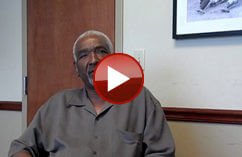Workers’ Compensation and Taxes in Dalton
A person seeking workers’ compensation should work with a lawyer in Dalton to understand the type of benefits that he or she is entitled. The individual must also understand how this might affect other income that he or she is entitled to. Workers’ compensation benefits may interact with Social Security benefits. Your future income may also be impacted by taxes and what kind of payments you get. The manner in which these things are categorized is important for tax purposes. Our lawyers could guide an individual through the different types of benefits and the way things are paid for. Consult a lawyer with experience handling workers’ compensation and taxes in Dalton. An adept workers’ compensation attorney could review your case and pursue your best interests.
Relationship Between Workers’ Compensation and Taxes in Dalton
Workers’ compensation benefits are not taxable in Dalton or in Georgia. Personal injury benefits and workers’ compensation benefits are designed to compensate a person for his or her inability to work following a work-related accident. If the benefits are compensation for long-term loss of ability to function or for medical benefits or other benefits, they are not taxable and do not go on an individual’s tax return. They do not increase a person’s taxable income and do not withhold anything from those when a person is receiving workers’ compensation benefits. A Dalton attorney could explain the relationship between taxes and workers’ compensation and how this might impact a person recovering from a work-related injury.
Work With an Accomplished Workers’ Compensation Attorney
A person seeking workers’ compensation should work with a lawyer in Dalton to understand the type of benefits he or she is eligible to receive. The individual must also understand how this might affect other income that he or she is entitled to. Workers’ compensation benefits may interact with Social Security benefits. His or her future income may also be impacted by taxes and what kind of payments they get. As a capable attorney could explain, the manner in which these things are categorized is important for tax purposes.
What Defines a Person’s Average Weekly Wage?
A person’s average weekly wage is defined by taking a snapshot of one year prior to his or her injury. All of the compensation that the employee has earned from the employer during that one-year snapshot is divided by the number of weeks worked. Normally, the individual would divide it by 52 weeks. If there were periods of time where the employee was not working during that time, he or she would deduct those weeks. If there are partial weeks not worked, it could then get complicated. The question of what income did the employee receive from the employer on average during the one year before the injury must be asked.
Relationship Between Taxes and Average Weekly Wage
Average weekly wage is different from what might appear on a person’s W-2 or what might appear on a tax return since an individual may be receiving certain types of compensation that are not taxable. Consequently, the person would want those benefits to be included in his or her average weekly wage.
An individual cannot simply look at his or her taxes and get this information unless they were injured on January 1. One year before his or her injury may run from March 31 to March 30 of the next year, and so the timeframe would also be different. When a person is receiving workers’ compensation benefits for temporary disability or for permanent impairment or when he or she is receiving medical benefits or reimbursement for expenses, both state and federal tax payments are tax-free.
When Workers’ Comp is Not Considered Tax-Free
Workers’ compensation in Dalton may not be considered tax-free if workers’ compensation interacts with other types of claims like wrongful discharge, loss of income, or some other type of claim. In those cases, the actual loss of income that a person might have suffered might be taxable, and so it could be that part of a person’s settlement is tax-free and part is taxable because there is more than one type of claim that the person has. However, the workers’ compensation portion of the claim is always tax-free.
How a Workers’ Compensation Lawyer Could Help
A workers’ compensation lawyer could assist with workers’ compensation and taxes in Dalton. As a seasoned attorney could explain, the difference between an independent contractor and an employee is complicated. Individuals must understand the law, the evidence, and how to prove that they are an employee when their employer is calling them an independent contractor. Unless one has legal training or specialized experience, this is a challenging thing to do and requires the help of a hard-working Dalton lawyer. Call today to learn about your legal options and how we could help you.














